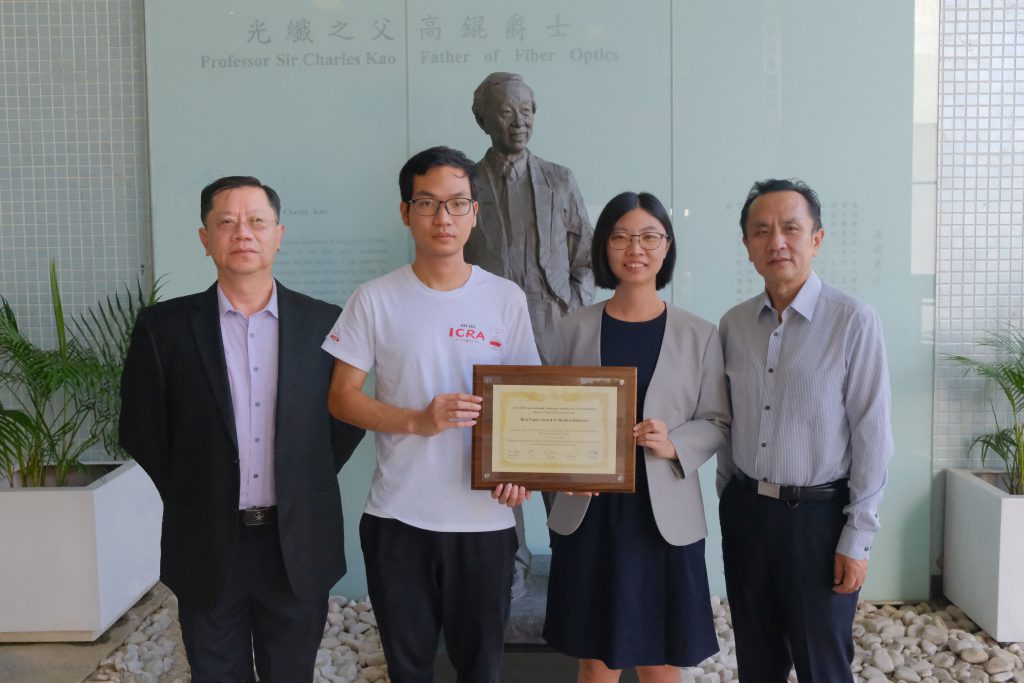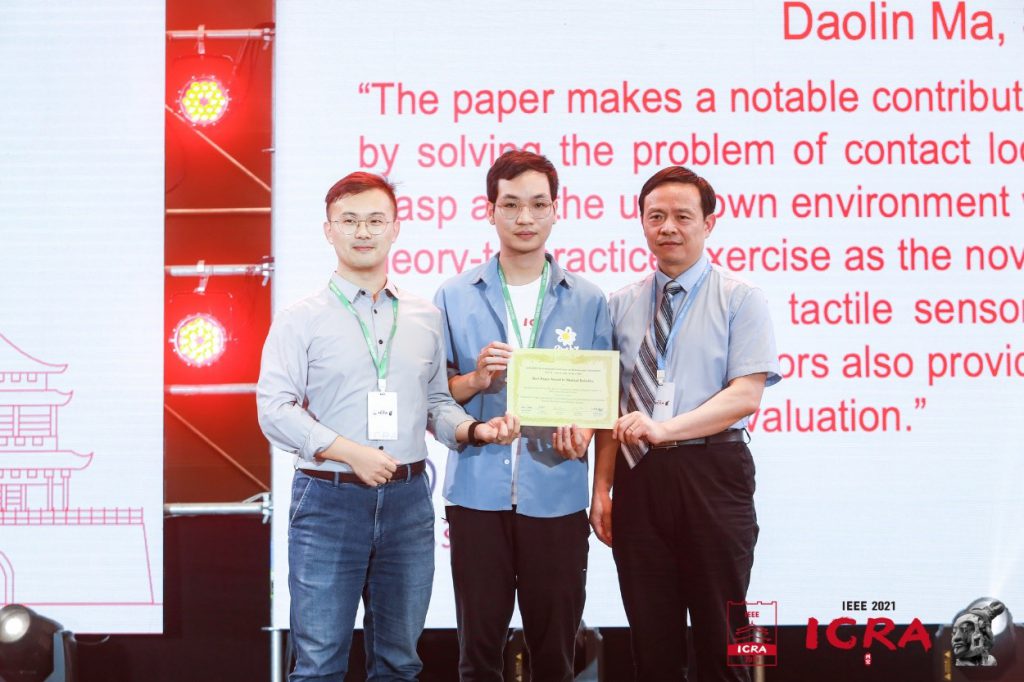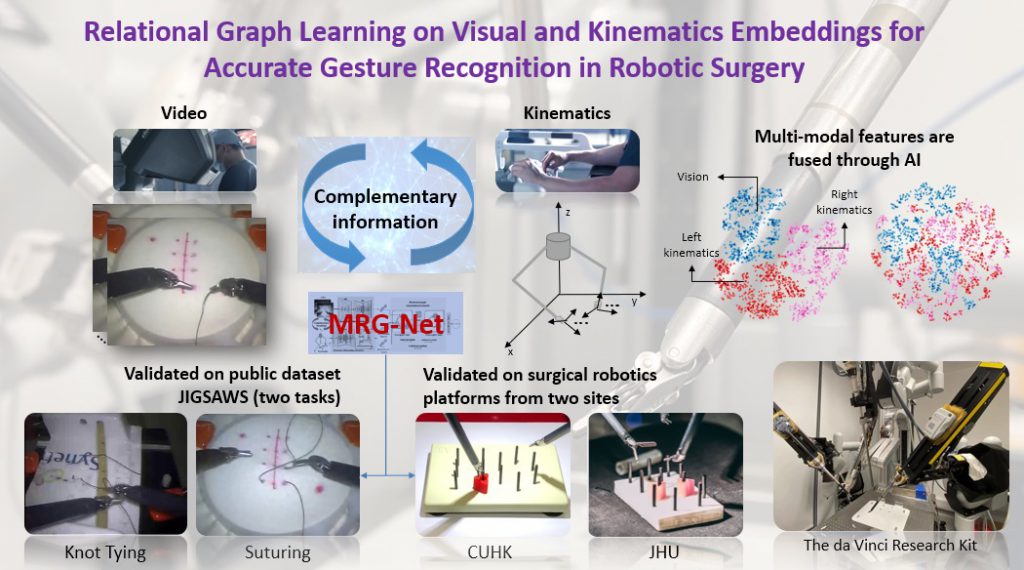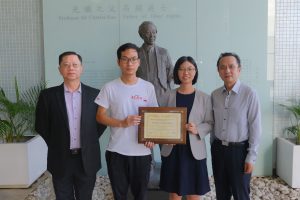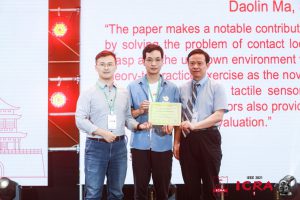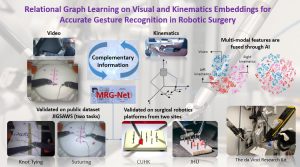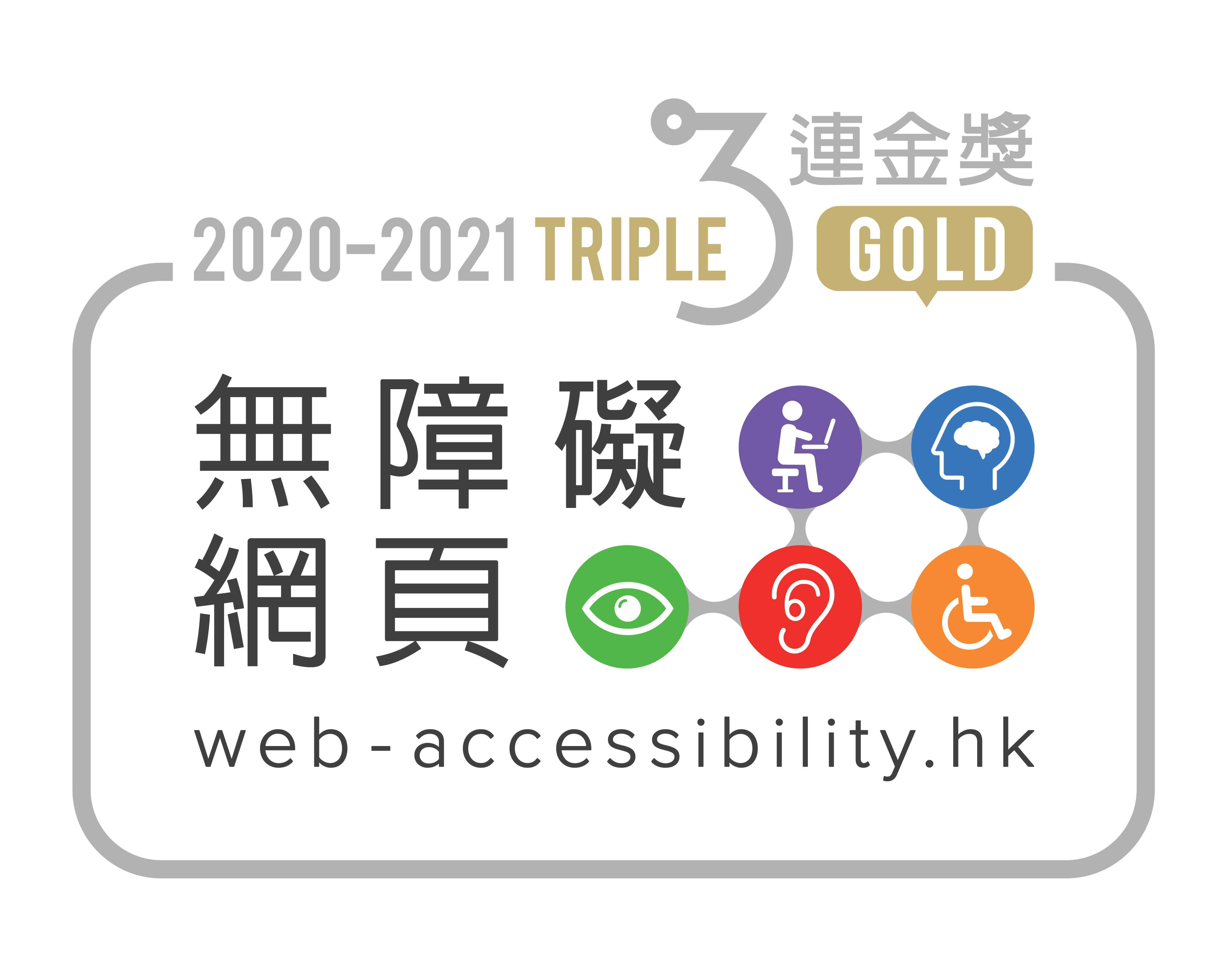CUHK
News Centre
CUHK Engineering Research Team Wins IEEE ICRA 2021 Best Paper Award in Medical Robotics
An engineering team working on AI for surgical robotics at The Chinese University of Hong Kong (CUHK) T Stone Robotics Institute has recently won the Best Paper Award in Medical Robotics at the IEEE International Conference on Robotics and Automation 2021 (ICRA 2021). The award-winning project was led by Professor Qi DOU, Assistant Professor and Professor Pheng Ann HENG, Professor from the Department of Computer Science and Engineering, together with Professor Yunhui LIU, Choh-Ming Li Professor of Mechanical and Automation Engineering, Faculty of Engineering.
ICRA is the most important and leading annual international conference in the field of robotics and automation, and it took place in Xi’an, China between 30 May and 5 June this year. The winning project by CUHK entitled “Relational Graph Learning on Visual and Kinematics Embeddings for Accurate Gesture Recognition in Robotic Surgery” is an AI system which can accurately recognise the robotic surgical gesture, which is important and fundamental to cognitive assistance and image-guided automation in robotic surgery. The team has applied a relational graph learning technique to integrate complementary information inherent in visual and kinematic multi-modal data recorded from the surgical robots. It can help to enhance the effectiveness of the “eyes” and “hands” of the surgical robot to understand the complex procedure. This is the first attempt in the area of robotics and automation to explore advanced AI techniques for correlating vision and kinematics, which opens a new door to significantly improving intelligent perception for medical robotics.
This project is jointly validated with the Laboratory for Computational Sensing and Robotics at Johns Hopkins University (JHU), through international collaboration in the Multi-scale Medical Robotics Centre, CUHK. The developed AI system has been extensively validated on two sets of medical robotics platforms of da Vinci Research Kit (dVRK) systems established at CUHK and JHU. The AI model presents outstanding and stable performance on both platforms, demonstrating a promising generalisability and independence of the system, which is crucial for data-driven AI techniques to be widely incorporated into different medical robots.
Professor Qi DOU said, “The project showcases the academic research mission and excellence of the research team in artificial intelligence for medical robotics and surgical data science, which will be a core fuel for benefiting patients who are required to undergo surgery with the next generation of medical robots in the modern operating room.”
About ICRA 2021 Best Paper Award in Medical Robotics
IEEE International Conference on Robotics and Automation (ICRA) is the largest and most important international academic conference in the field of robotics and automation. A total of 1,690 papers have been selected for presentation at ICRA 2021, setting a new record in its history. The Best Paper Award in Medical Robotics is judged on technical merit and originality, relevance and potential impact on the medical robotics field, possible clinical efficacy, clarity of the written paper, and quality of the conference presentation. The paper with the most outstanding contributions to this field will be named.
About CUHK T Stone Robotics Institute
Since its establishment in 2016, CUHK T Stone Robotics Institute has focused its research efforts on two major research areas: medical robotics and service robotics. For medical robots, the Institute studies and develops surgical robots, rehabilitation and assistive robots as well as micro/nano medical robots. Hong Kong is facing an ageing population and there is an urgent need to invent robots for elderly care. Service robots for senior citizens is another major research area of the Institute. It also encourages faculty members and students to establish robotics startups, and actively promotes robotics innovation among undergraduate and secondary students by providing training courses and initiating robotics competitions.
